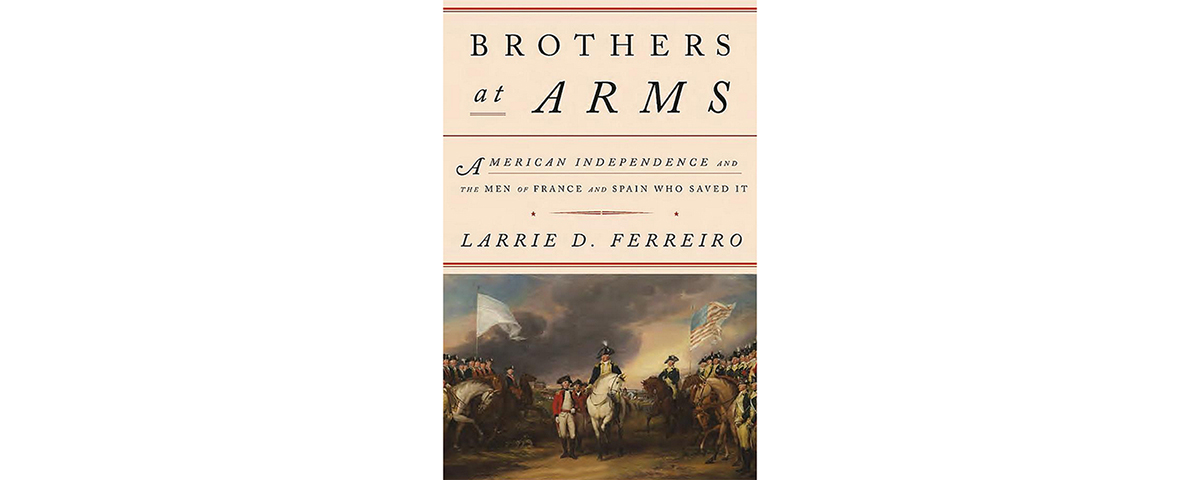Brothers at Arms: American Independence and the Men of France and Spain Who Saved It, by Larrie D. Ferreiro, Alfred A. Knopf, New York, 2016, $30
This well-written book seeks to demythologize the American Revolutionary War by framing it in an international context. Rather than being a rebellion won by plucky minutemen at Concord or guerrillas following Francis “The Swamp Fox” Marion through the Carolinas, Ferreiro argues the war was in fact a game of global geopolitics played by Europe’s great powers—England, France and Spain. While the United States (or what the French called the United American Provinces) played a part in that game, events as far away as Brazil, India, and Central Europe all helped determine the fate of the upstart colonists.
Most Americans know the French sent the colonists a fleet under Lt. Gen. François-Joseph-Paul de Grasse and a force of 7,000 men under Jean-Baptiste-Donatien de Vimeur, Comte de Rochambeau, sealing the British defeat at Yorktown. Ferreiro shows the relationship went much deeper and began much earlier. Although neither France nor Spain appear by name in the text of the Declaration of Independence, Ferreiro argues its chief intended audiences were the royal courts of Paris and Madrid. By declaring openly for independence, the Americans were pleading for help and demonstrating they were prepared to fight to the finish, hopefully proving to the French and Spanish the new nation would make a good strategic investment. Thomas Paine had already made the case for French and Spanish alliances in his pamphlet Common Sense, published earlier in 1776.
For their part the French and Spanish were less concerned about helping the plucky Americans than they were in improving their geopolitical position and exacting a measure of revenge against the British for the Seven Years’ War, a conflict that propelled British power worldwide. While helping the Americans break away from their imperial masters might not wholly right the score, it would certainly help. The French especially began to loan money, negotiate favorable trade deals and provide materiel support.
As with many such alliances, each side mistrusted the other. John Adams in particular considered aristocratic France an unstable and unreliable ally. Still, Ferreiro reveals the global dimensions of British, French and Spanish strategy in the period, consciously exploding what he deems America’s “myth of heroic self-sufficiency.”
—Michael S. Neiberg





